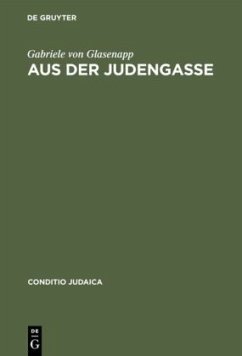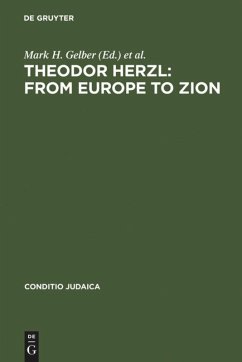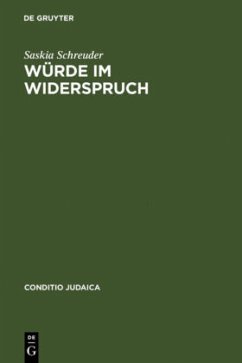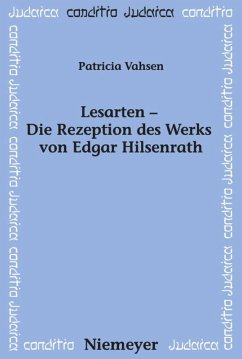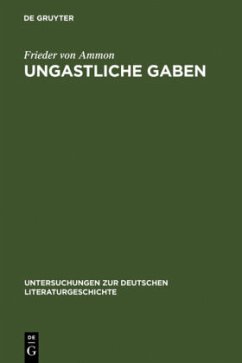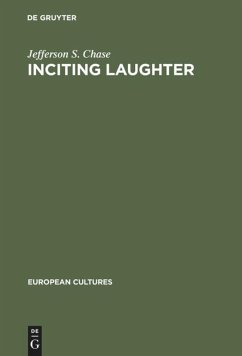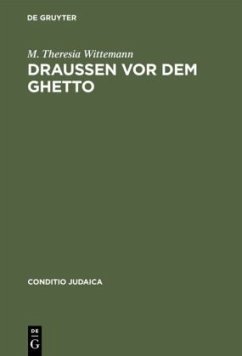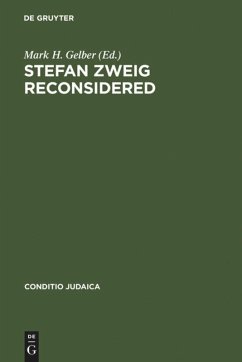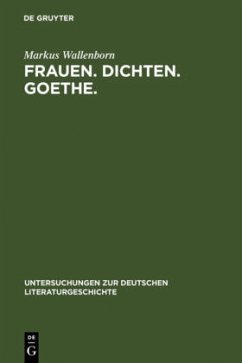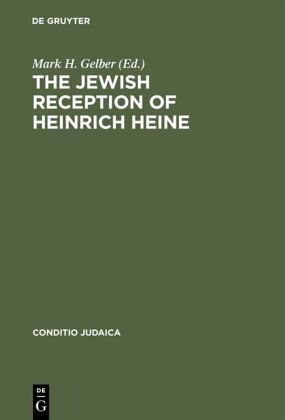
The Jewish Reception of Heinrich Heine
Versandkostenfrei!
Versandfertig in 1-2 Wochen
82,99 €
inkl. MwSt.

PAYBACK Punkte
41 °P sammeln!
This volume contains the lectures, many substantially expanded and revised, which were delivered at an international conference held at Ben-Gurion University in Beersheva in 1990. By utilizing the methodological guidelines and insights of reception aesthetics, a range of Jewish readings of Heine's works and his complex literary personality are analyzed. Considerations of his impact on major figures, like Sigmund Freud, Karl Marx, Theodor Herzl, Max Nordau, Karl Kraus, Else Lasker-Schüler, Lion Feuchtwanger, and Max Brod comprise the major part of the book. In addition, there are readings of H...
This volume contains the lectures, many substantially expanded and revised, which were delivered at an international conference held at Ben-Gurion University in Beersheva in 1990. By utilizing the methodological guidelines and insights of reception aesthetics, a range of Jewish readings of Heine's works and his complex literary personality are analyzed. Considerations of his impact on major figures, like Sigmund Freud, Karl Marx, Theodor Herzl, Max Nordau, Karl Kraus, Else Lasker-Schüler, Lion Feuchtwanger, and Max Brod comprise the major part of the book. In addition, there are readings of Heine by minor or neglected Jewish writers and poets, including, for example, Aron Bernstein and Fritz Heymann, and by Jewish writers in Hebrew and Yiddish literature, as well as by Jewish readers within other national readerships, for example, the American and Croatian. In the process of this analysis, the notion of Jewish reception itself is naturally subjected to critical scrutiny.



